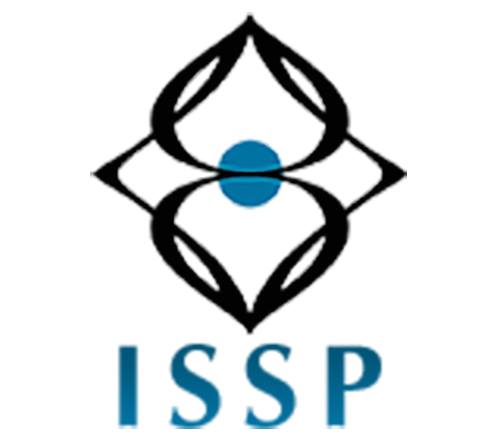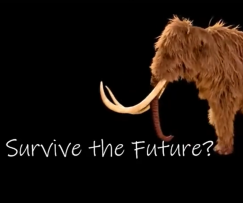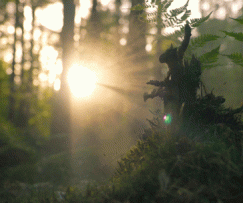Adverse Childhood Experiences:
Redefining trauma as the collective experience
By Donna Thomas
It’s great that ACEs are high on the agenda for organizations that support adults, children & young people. The process of making links between adverse experiences in childhood and issues that surface in adulthood is a worthy one. Organizations that are embracing the ACE approach use a questionnaire with adults to measure the number of adverse experiences they had in childhood. The ten indicators relate to challenging circumstances in the child’s environment, and an individual is asked to identify which (if any) applies to them. The measurement tool is becoming embedded in different support services for adults, and organizations which support children are becoming ACE aware as a preventative measure against issues in later life.

Advocates of ACE suggest that brain development can be affected in children growing up in challenging environments, and early adverse experience can impact the psychological and biological wellbeing of the adult. Social studies show that adverse experiences move in cycles within deprived communities and certain cultural settings. From different perspectives (psychological, social and medical), ACEs set the stage for dysfunction in later years and remain in a cyclic movement of culture and community. For professionals working in organizations, attention paid to the ACEs of their patients or clients can offer new types of support and a better understanding of their issues.
Taking a closer look at who qualifies as an ACE candidate is relatively simple. The categories of adverse experience on the measurement scale range from physical abuse to the divorce of parents. A higher number of ACEs suggests that an individual will be more prone to issues surrounding their mental health and emotional wellbeing. More progressive research around ACEs show the resilience of those who rank high on the scale (6 or more out of a scale of 10) but it’s not clear what resilience means. Are we measuring resilience in terms of social success (career, education
ACE is becoming a closed system that leaves no room for further contemplation about the nature of trauma,
In fact, organizational stories are starting to construct the ACE agenda as a panacea of understanding for broken adults. ACE ‘awareness’ is gaining momentum in schools and ‘trauma’ is moving into the consciousness of organizations which historically partition and pass over suffering like a hot potato. The movement to recognize and deal with trauma is encouraging and a step in the right direction. Yet ACE is becoming a closed system that leaves no room for further contemplation about the nature of trauma, its potential roots and the old medical paradigm in which it takes shape. And this is where the ACE approach may fall short in offering meaningful support for people.
Cutting edge research in the areas of epigenetics, psychology and neuroscience reveals trauma as adverse experience that may have its roots beyond childhood, showing trauma to be our collective cross to bear. We each embody trauma. Our early collective trauma starts in our perinatal experiences (in the womb) and at the moment we are separated from our mother’s body. Recent research (Orouz & Snagy, 2018) evidences the impact of our birth experiences that ‘create patterns which may arise again in later life situations,’ affecting how we relate to the world and each other. The degree to which we become affected by our initial trauma depends on the environments that are available for our nurturing and growth. For children who feel unsafe, unloved and neglected, life and the world become frightening. Even as we grow in the womb, we are exposed to the contents of a collective field containing traumatic patterns of the psyche.
Psychiatrist Stanislav Grof conducted research into the ‘perinatal’ experiences of human beings. His research has spanned fifty years and has included thousands of participants. Grof’s studies demonstrate how perinatal trauma can negatively affect the health and wellbeing of people in later life (including the arising of ‘disorders’ such as psychosis, schizophrenia

And science is now evidencing the role our ancestors play in the trauma we experience. Studies conducted on the grandchildren of holocaust survivors (Yehmen, 2015) show how Post Traumatic Stress Disorder is carried through cells and chemicals. Epigenetic research is demonstrating how our bodies store traumatic responses from the experiences of our ancestors. We only need to look to a new paradigm emerging in the neurosciences which suggests our memories are non-local, stored in a collective field. Not only do we inherit trauma biologically, but we also access the traumatic stories and memories of our loved ones.
Where does this leave the ACE scale? The ACE measurement system is useful in connecting dots on a relative level of experience, across a linear timeline of our personal stories. Yet trauma takes shape as a constellation of experiences that expand beyond our ideas of personal self. Different therapeutic models can access traumatic experiences of a transpersonal nature. Yet these approaches sit outside mainstream systems that ACE operates within, and as our trauma is collective and largely resides in the realms of the unseen, the relationship between professional and experiencer needs to be examined. Are professionals counting their own ACE scores within the relational field of trauma? When a professional is trained to dialogue with people and give them a score, are they aware of their own conditioning, perceptions and traumatic blocks that can shape and influence this process? Some may argue that they have never experienced trauma or only low levels of adverse experience. In fact, trauma can be so subtle, hidden and blocked in the system, that many of us may not recognize it until it is brought to our attention. Gabor Mate, an MD who now works with individuals affected by addiction raises this point. As an MD, Mate was ‘addicted to classical music’ to the point where he would leave patients to rush to the store to buy music. His reflections on his own addictive behavior and those of his patients conclude that we all have an addiction, as a result of social conditioning and the limited nature of mind.
We need to redefine or perhaps broaden the categories of traumatic experiences that lead to suffering in adulthood. This goes hand in hand with wider cultural and system changes in how we view trauma, suffering and mental health. In essence we need to reauthor what it means to be human. The ACE approach is valuable and can be an opportunity to open ideas and outdated perceptions of the roots of trauma and human suffering. If you are a human being, the trauma of separation is in your system. Western narratives perpetuate our collective and inherited trauma as we are conditioned to believe we are separate and discreet objects that can break down. Reauthoring our inner stories by looking closely at our own patterns of suffering starts to bring about a self-realization that all is not as it would appear. In order for ACE work to be suitable and truly worthwhile, each one of us needs to self-enquire. Categories for trauma need to be expanded upon and suffering seen within a wider sense of reality.
_____________________________
Donna Thomas has a
This post appeared previously on the Science and Nonduality (SAND) website here.












